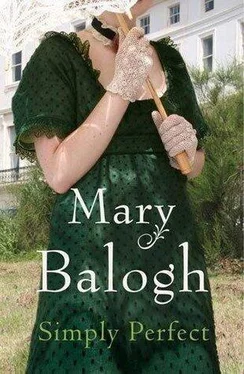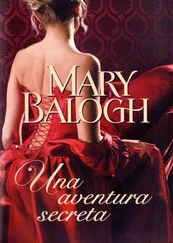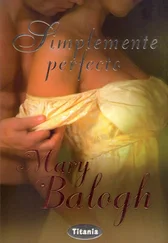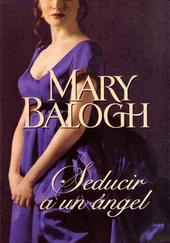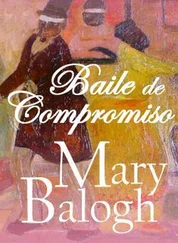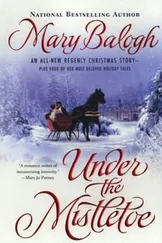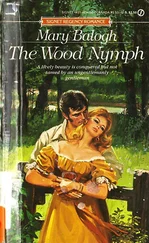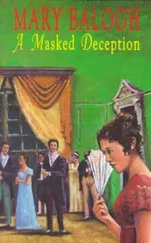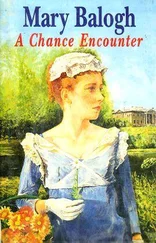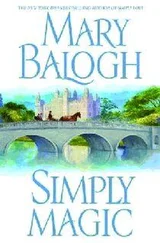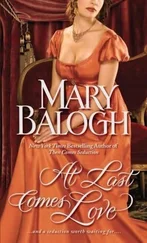A few of the girls were working with Mr. Upton on the stage backdrop. They all turned to see who had come in and then proceeded to gawk at the grand visitor. Claudia was obliged to introduce the two men. They shook hands, and the marquess strolled closer to inspect the artwork and ask a few intelligent questions. Mr. Upton beamed at him when he left the room with her a few minutes later, and all the girls gazed worshipfully after him. And then in the music room they came upon the madrigal choir, which was practicing in the absence of Mademoiselle Pierre under the supervision of Miss Wilding. They hit an ear-shattering discord at full volume just as Claudia opened the door, and then they dissolved into self-conscious giggles while Miss Wilding blushed and looked dismayed. Claudia, raising her eyebrows, introduced the teacher to the marquess and explained that the regular choirmistress was indisposed today. Though even as she spoke she was annoyed with herself for feeling that any explanation was necessary. “Madrigal singing,” he said, smiling at the girls, “can be the most satisfying but the most frustrating thing, can it not? There is perhaps one other person out of the group singing the same part as oneself and six or eight others all bellowing out something quite different. If one’s lone ally falters one is lost without hope of recovery. I never mastered the art when I was at school, I must confess. During my very first practice someone suggested to me that I try out for the cricket team—which just happened to practice at the same time.” The girls laughed, and all of them visibly relaxed. “I will wager,” he said, “that there is something in your repertoire that you can sing to perfection. May I be honored to hear it?” He turned his smile upon Miss Wilding. “ ‘The Cuckoo,’ miss,” Sylvia Hetheridge suggested to a murmur of approval from the rest of the group. And they sang in five parts without once faltering or hitting a sour note, a glorious shower of “cuckoos” echoing about the room every time they reached the chorus of the song. When they were finished, they all turned as one to the Marquess of Attingsborough, just as if he were visiting royalty, and he applauded and smiled. “Bravo!” he said. “Your skill overwhelms me, not to mention the loveliness of your voices. I am more than ever convinced that I was wise to stick to cricket.” The girls were all laughing and gazing worshipfully after him when he left with Claudia. Mr. Huckerby was in the dancing hall, putting a group of girls through their paces in a particularly intricate dance that they would perform during the assembly. The marquess shook his hand and smiled at the girls and admired their performance and charmed them until they were all smiling and—of course—gazing worshipfully at him. He asked intelligent and perceptive questions of Claudia as she showed him some of the empty classrooms and the library. He was in no hurry as he looked about each room and read the titles on the spines of many of the books. “There was a pianoforte in the music room,” he said as they made their way to the sewing room, “and other instruments too. I noticed a violin and a flute in particular. Do you offer individual music lessons here, Miss Martin?” “Indeed we do,” she said. “We offer everything necessary to make accomplished young ladies of our pupils, as well as persons with a sound academic education.” He looked around the sewing room from just inside the door but did not walk farther into it. “And do you teach other skills here in addition to sewing and embroidery?” he asked. “Knitting, perhaps? Tatting? Crochet?” “All three,” she said as he closed the door and she led the way to the assembly hall. It had been a ballroom once when the building was a private home. “It is a pleasingly designed room,” he said, standing in the middle of the gleaming wood floor and turning all about before looking up at the high, coved ceiling. “Indeed, I like the whole school, Miss Martin. There are windows and light everywhere and a pleasant atmosphere. Thank you for givin g me a guided tour.” He turned his most charming smile on her, and Claudia, still holding both his visiting card and Susanna’s letter, clasped her free hand about her wrist and looked back with deliberate severity. “I am delighted you approve,” she said. His smile was arrested for a moment until he chuckled softly. “I do beg your pardon,” he said. “I have taken enough of your time.” He indicated the door with one arm, and Claudia led the way back to the entrance hall, feeling—and resenting the feeling—that she had somehow been unmannerly, for those last words she had spoken had been meant ironically and he had known it. But before they reached the hall they were forced to pause for a few moments while the junior class filed out of the dining hall in good order, on their way from tea to study hall, where they would catch up on any work not completed during the day or else read or write letters or stitch at some needlework. They all turned their heads to gaze at the grand visitor, and the Marquess of Attingsborough smiled genially back at them, setting them all to giggling and preening as they hurried along. All of which went to prove, Claudia thought, that even eleven- and twelve-year-olds could not resist the charms of a handsome man. It boded ill—or continued to bode ill—for the future of the female half of the human race. Mr. Keeble, frowning ferociously, bless his heart, was holding the marquess’s hat and cane and was standing close to the front door as if to dare the visitor to try prolonging his visit further. “I will see you early two mornings from now, then, Miss Martin?” the marquess said, taking his hat and cane and turning to her as Mr. Keeble opened the door and stood to one side, ready to close it behind him at the earliest opportunity. “We will be ready,” she said, inclining her head to him. And finally he was gone. He did not leave Claudia feeling kindly disposed toward him. Whatever had that been all about? She wished fervently that she could go back half an hour and refuse his offer to escort her and the girls to London the day after tomorrow. But she could not, and that was that. She stepped into her study and looked into the small mirror that she kept behind the door but rarely consulted. Oh, goodness gracious! Her hair really was flat and lifeless. Several strands had pulled loose from the knot at the back of her neck. There was a faint smudge of ink on one side of her nose left there when she had tried to remove it earlier with her handkerchief. And one point of her collar was indeed slightly curled and the whole thing off center. She adjusted it one-handed, very much too late, of course. Horrid man! It was no wonder his eyes had laughed at her the whole time. She remembered Susanna’s letter then and broke the seal. Joseph Fawcitt, Marquess of Attingsborough, was the son and heir of the Duke of Anburey, she read in the first paragraph—and winced. He was going to offer to bring Claudia and the girls to London with him on his return from Bath, and Claudia must not hesitate to accept. He was a kind and charming gentleman and entirely to be trusted. Claudia raised her eyebrows and compressed her lips. The main reason for Susanna’s letter, though, was quickly obvious. Frances and Lucius—the Earl of Edgecombe, her husband—had returned from the Continent, and Susanna and Peter were arranging a concert at their house at which Frances was going to sing. Claudia simply must stay long enough to hear her and she simply must stay even longer to enjoy a few other entertainments of the Season too. If Eleanor Thompson had expressed a willingness to look after the school for one week, then surely she would be willing to do so for another week or so too, by which time the summer term would be at an end. The extended invitation was enormously tempting, Claudia had to admit. Frances had been the first of her teachers and friends to marry. With the encouragement of a remarkably enlightened husband, she had since become a singer who was renowned and much sought after all over Europe. She and the earl traveled for several months of each year, going from one European capital to another for various singing engagements. It was a year since Claudia had last seen her. It would be wonderful to see both her and Susanna together within the next week or two and to spend some time in their company. But even so… She had left the study door open. Eleanor poked her head about it after scratching lightly on its outer panel. “I will take study hall for you tonight, Claudia,” she said. “You have had a busy day. Your aristocratic visitor did not eat you alive, then? The school is buzzing with his praises.” “Susanna sent him,” Claudia explained. She grimaced. “He has offered to take Edna and Flora and me with him in his carriage when he returns to London the day after tomorrow.” “Oh, my!” Eleanor exclaimed, coming right inside the room. “And I missed seeing him. It is to be hoped that he is tall, dark, and handsome.” “All three,” Claudia said. “He is also the son of a duke!” “Enough said.” Eleanor held up both hands, palms out. “He must be the darkest of villains. Though one day I hope to convince you that my brother-in-law, the Duke of Bewcastle, is not.” “Hmm,” Claudia said. The Duke of Bewcastle had once been her employer, when for a short time she had been governess to his sister and ward, Lady Freyja Bedwyn. They had not parted on the best of terms, to put the matter lightly, and she had strongly disliked him and all who shared his rank ever since. Though if the truth were told, her antipathy to dukes had not started with him… But she pitied Eleanor’s younger sister from the bottom of her heart, married to such a man. The poor duchess was a remarkably amiable lady—and she had once been a teacher herself. “Frances is back in England,” she told Eleanor. “She is going to sing at a concert Susanna and the viscount are organizing. Susanna wants me to stay for it and some other entertainments of the Season. It is a pity it is not all happening after school is over for the year. But by then, of course, the Season will be all but over too. Of course, I have absolutely no aspirations whatsoever to move in tonnish circles. The very idea gives me the shudders. Only it would have been lovely to see both Susanna and Frances and spend some time in company with them. I can do that some other time, though—preferably in the country.” Eleanor clucked her tongue. “Of course you must stay in London for longer than a few days, Claudia,” she said. “It is what Lady Whitleaf has been urging and I have been encouraging all along. I am perfectly capable of running the school for a few weeks and of giving a suitably stirring and affecting speech on your behalf at the end-of-year assembly. And if you wish to stay even longer than a few weeks, you must do so without suffering any qualms. Lila and I will both be here over the summer to look after the charity girls, and Christine has renewed her invitation for me to take them to Lindsey Hall for a few weeks while she and Wulfric visit some of his other estates. It would give me a chance to spend some time with my mother.” Christine and Wulfric were the Duchess and Duke of Bewcastle. Lindsey Hall was the latter’s principal seat in Hampshire. The invitation had astonished Claudia when it had first been made, and she wondered if the duchess had consulted her husband before making it. But then, of course, the charity girls had stayed at Lindsey Hall once before, just a year ago, in fact, on the occasion of Susanna’s wedding, and the duke had actually been in residence at the time. “You must stay,” Eleanor said again. “Indeed, you must promise to stay for at least a couple of weeks. I shall be offended if you will not do so. I shall think you do not trust me to take your place here.” “Of course I trust you,” Claudia said, feeling herself waver. But how could she not stay now? “It would be pleasant, I must admit…” “Of course it would,” Eleanor said briskly. “Of course it will. That is settled, then. And I must be off to study hall. With the way this day is progressing, the chances are strong that a few desks will be chopped into kindling or some sort of titanic battle will be proceeding if I do not get there soon.” Claudia sat down behind her desk after Eleanor had left, and folded up Susanna’s letter. What a very strange day! It seemed to have been at least forty-eight hours long. What on earth was she going to talk about during all the hours of the journey to London? And how was she to keep Flora from prattling and Edna from giggling? She wished fervently that the Marquess of Attingsborough were at least sixty years old and looked like a toad. Perhaps then she would not feel quite so intimidated by him. Though the very use of that word in her mind made her bristle all over again. Intimidated? She? By a mere man? By a marquess? Heir to a dukedom? She would not give him the satisfaction, she thought indignantly, just as if he had expressed the overt wish of seeing her grovel in servile humility at his feet.
Читать дальше
